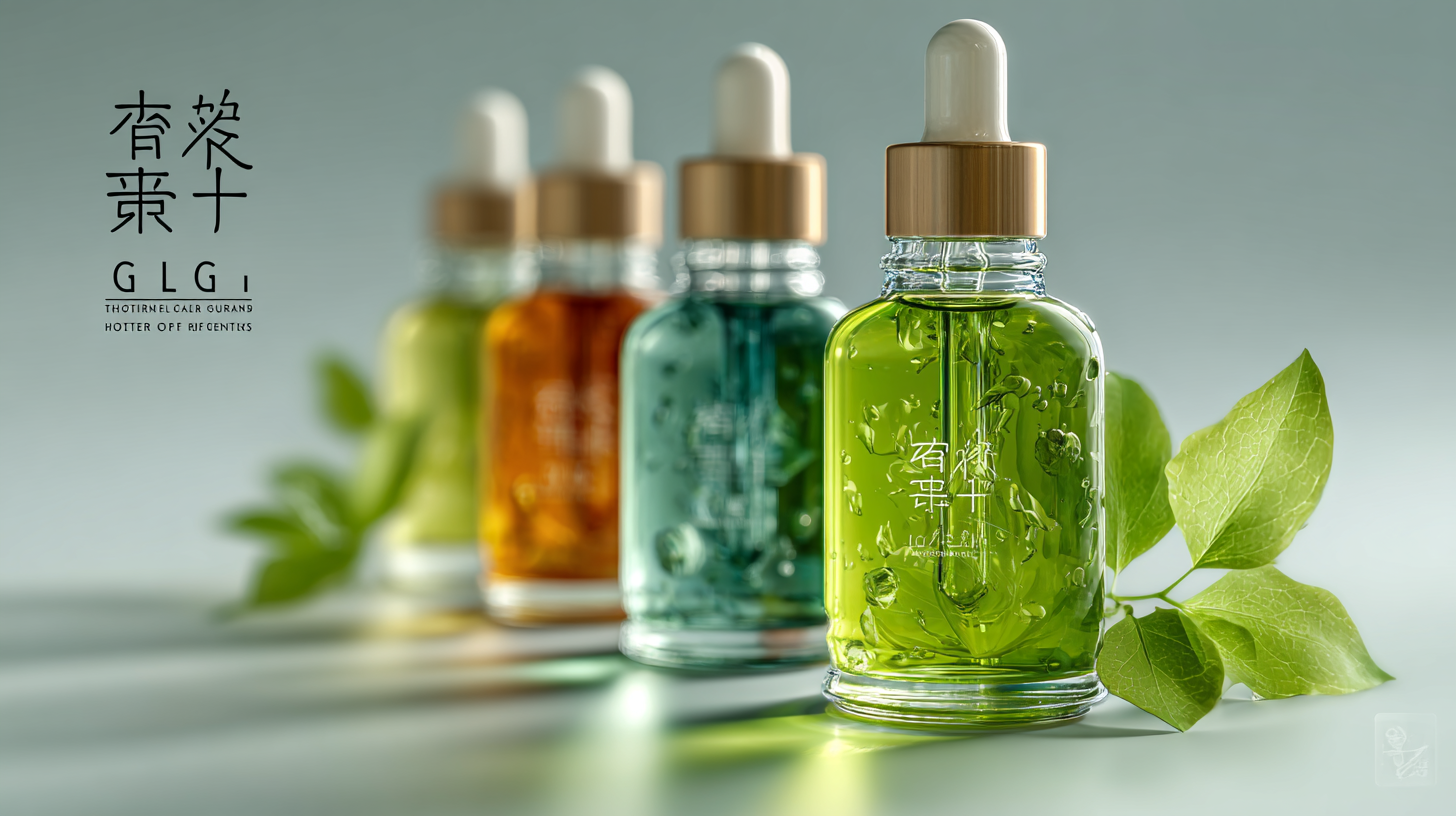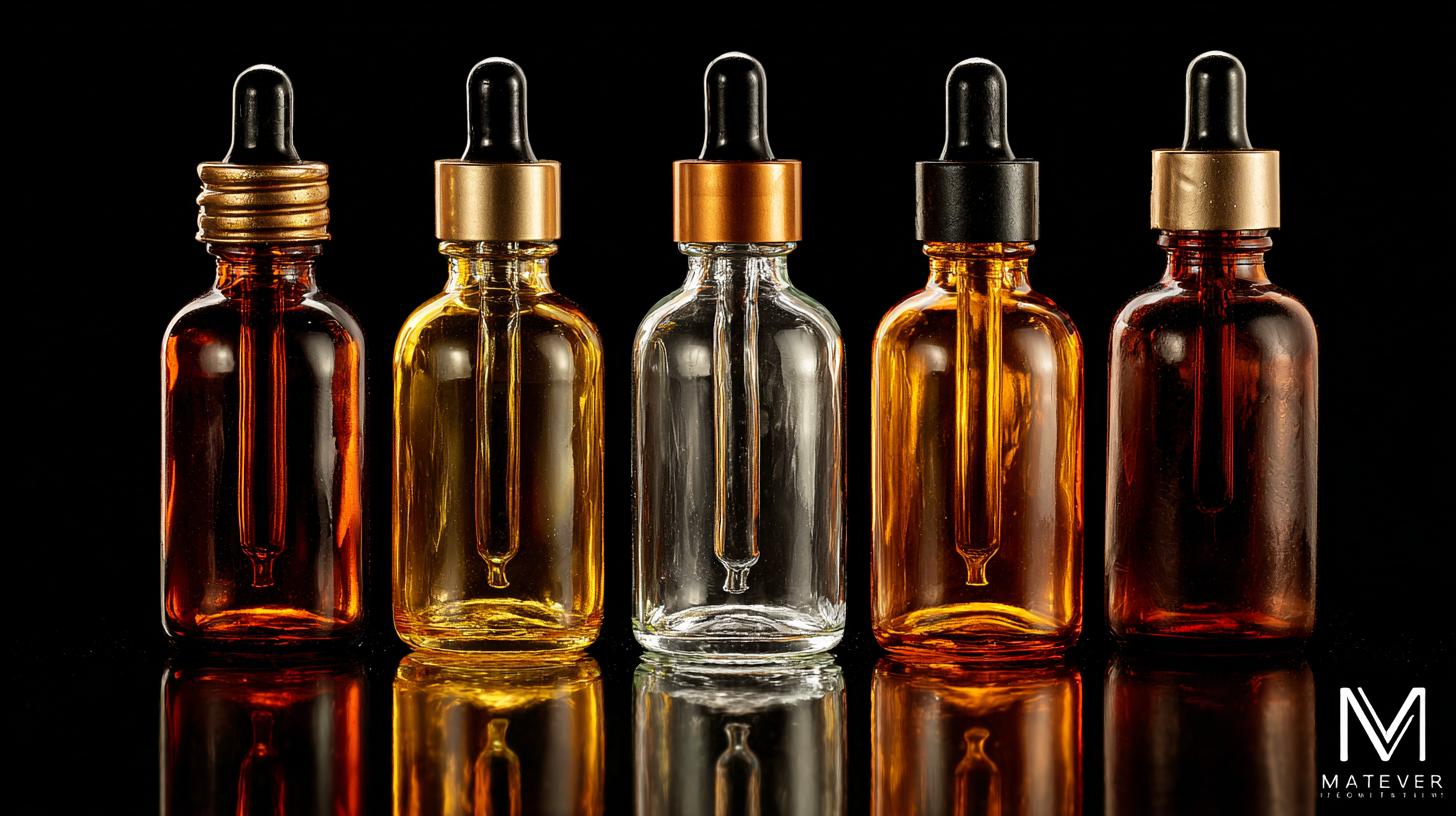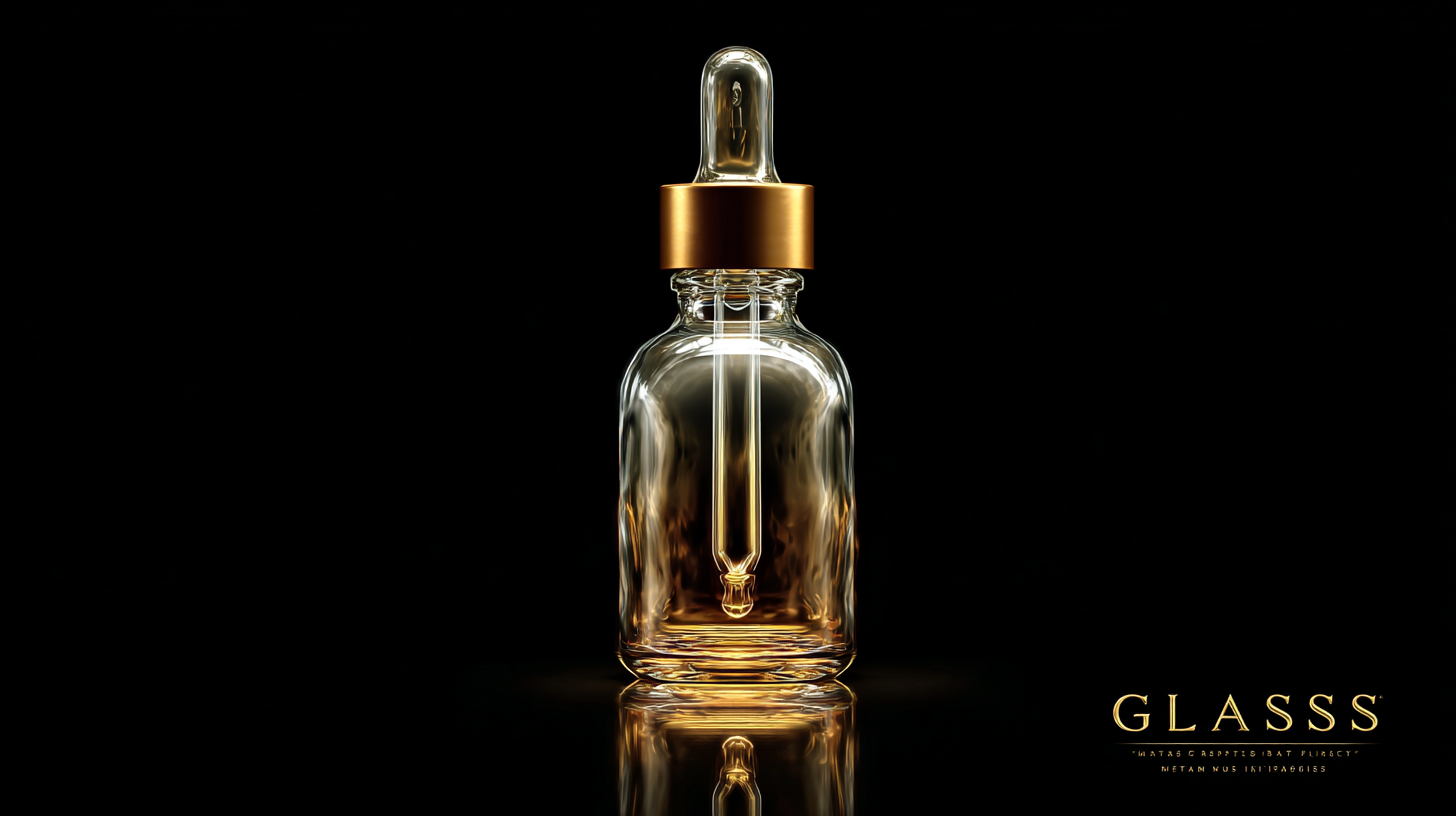Masterfully Crafted: The Global Impact of China's Best Glass Dropper Bottles on Consumer Wellness
In recent years, the demand for Glass Dropper Bottles has surged, driven by a growing consumer awareness of wellness and the shift towards natural remedies and essential oils. According to a report by Grand View Research, the global essential oils market is projected to reach USD 13.94 billion by 2026, with an annual growth rate of 8.6%. This proliferation in the wellness sector has placed Glass Dropper Bottles at the forefront of packaging solutions due to their ability to preserve the integrity of sensitive formulations while offering precise dispensing.

As a result, China's production of these bottles has not only catered to domestic needs but has also made a substantial impact globally, influencing consumer preferences. The craftsmanship and sustainability elements associated with Glass Dropper Bottles position them as vital tools for enhancing consumer experiences in health and wellness, further underscoring their pivotal role in shaping industry trends leading up to 2025.
The Growing Demand for Glass Dropper Bottles in the Global Market
The global demand for glass dropper bottles has seen a significant surge in recent years, driven by the increasing consumer preference for sustainable and eco-friendly packaging solutions. According to a market research report by Grand View Research, the global glass bottle market size was valued at approximately USD 64.6 billion in 2020 and is expected to expand at a compound annual growth rate (CAGR) of 3.3% from 2021 to 2028. As consumers become more health-conscious, the use of glass bottles, particularly dropper varieties, has become a preferred choice for packaging essential oils, herbal extracts, and wellness products.
Moreover, the rise in popularity of organic and natural skincare products has further fueled the demand for glass dropper bottles. A report from Research and Markets indicates that the global organic skincare market is projected to grow from USD 13.33 billion in 2020 to USD 22.50 billion by 2026, reflecting a CAGR of 9.3%. This trend highlights a shift in consumer behavior towards products that are not only effective but also packaged in materials that are perceived as safer and healthier. As a result, manufacturers are increasingly investing in high-quality glass dropper bottles, recognizing their essential role in promoting wellness and sustainability in the marketplace.
Masterfully Crafted: The Global Impact of China's Best Glass Dropper Bottles on Consumer Wellness
| Region | Market Demand (Units in Millions) | Growth Rate (2023-2028) | Key Drivers |
|---|---|---|---|
| North America | 25 | 6.5% | Health & Wellness Trends |
| Europe | 20 | 5.8% | Sustainability Concerns |
| Asia-Pacific | 35 | 8.2% | Rising Herbal Product Usage |
| Latin America | 10 | 4.5% | Increased Use of Essential Oils |
| Middle East & Africa | 5 | 3.1% | Growing Wellness Culture |
Analyzing the Health Benefits of Using High-Quality Glass Packaging
High-quality glass packaging, particularly in the form of dropper bottles, has become increasingly popular in the wellness industry. One significant health benefit of using glass is its chemical non-reactivity. Unlike plastic, which can leach harmful substances into its contents, glass is an inert substance that preserves the purity of essential oils, tinctures, and herbal extracts. This ensures that consumers receive the full therapeutic effect of the product, free from unwanted contaminants.

Moreover, glass dropper bottles are more sustainable than their plastic counterparts. With growing awareness of environmental issues, consumers are seeking products that not only benefit their health but also promote ecological sustainability. Glass is recyclable and can be reused, reducing the carbon footprint associated with production and waste disposal. This dual benefit of enhancing personal wellness while contributing to environmental health makes glass an ideal choice for consumers committed to a healthier lifestyle. As more brands prioritize glass packaging, the ripple effect is likely to reshape consumer expectations and industry standards across the globe.
China's Role in Revolutionizing the Glass Bottling Industry
China has emerged as a pivotal player in revolutionizing the glass bottling industry, particularly with the production of high-quality glass dropper bottles. According to a recent market analysis by Grand View Research, the global glass bottle market size was valued at USD 60.6 billion in 2022 and is expected to grow at a compound annual growth rate (CAGR) of 4.5% from 2023 to 2030. This growth is largely fueled by the rising consumer demand for eco-friendly packaging solutions, with glass being a preferred choice due to its recyclability and inert properties.
China’s innovative manufacturing processes have significantly improved the efficiency and quality of glass packaging. A report by Market Research Future indicates that the glass dropper bottle segment is witnessing impressive growth, projected to reach an estimated USD 3 billion by 2026. The increasing popularity of essential oils, cosmetics, and pharmaceutical products in glass dropper bottles reflects a broader trend toward holistic consumer wellness. As manufacturers in China continue to refine their techniques and adopt sustainable practices, they are not only enhancing product quality but also contributing positively to global health trends by promoting safer, chemical-free packaging solutions.
Impact of Glass Dropper Bottles on Consumer Wellness
This chart illustrates the positive impact of glass dropper bottles on consumer wellness across different product categories, highlighting the shift towards safer and more sustainable packaging solutions.
Sustainability Trends: Eco-Friendly Practices in Glass Production
The glass dropper bottle industry is witnessing a pivotal transformation, driven by enhanced sustainability trends. As consumers become increasingly conscientious about their choices, manufacturers in China are adapting by implementing eco-friendly practices in glass production. This shift not only caters to the growing demand for greener products but also reflects a broader commitment to minimizing environmental impact. By utilizing recycled materials and investing in energy-efficient technologies, these companies are leading the way toward more sustainable production methods.
Moreover, the global reach of China's expertly crafted glass dropper bottles exemplifies the confluence of functionality and environmental stewardship. These bottles are designed with both user experience and eco-impacts in mind. Consumers can benefit from the premium quality and durability of glass, which reduces waste and encourages reuse. As sustainability becomes a defining factor in consumer wellness, the adoption of eco-friendly glass production practices is not just a trend but a vital step toward ensuring a healthier planet for future generations.
Consumer Preferences: Why Quality Matters in Packaging Choices
In today’s health-conscious market, the importance of quality packaging cannot be overstated. According to a 2020 study by MarketsandMarkets, the global demand for high-quality packaging is expected to grow at a CAGR of 5.6%, reaching approximately $1 trillion by 2024. This trend highlights a clear consumer preference for products that not only look appealing but also maintain the integrity of the contents effectively. As consumers increasingly prioritize their wellness, they are gravitating towards products housed in premium materials, such as glass dropper bottles made in China, known for their superior quality and sustainability.

The demand for glass dropper bottles is driven by their ability to protect sensitive formulations, particularly in the skincare and herbal supplement industries. A report by Allied Market Research stated that the global glass packaging market is projected to expand significantly, with a notable shift towards environmentally friendly options. Consumers are keen on ensuring their choices are not just about aesthetics but also about preserving the purity and effectiveness of the products they use. The rise of e-commerce has further amplified this trend, as online shoppers often rely on product packaging as a direct indicator of quality. As the market evolves, it is clear that the quality of packaging will continue to play a crucial role in shaping consumer preferences and driving industry standards.
